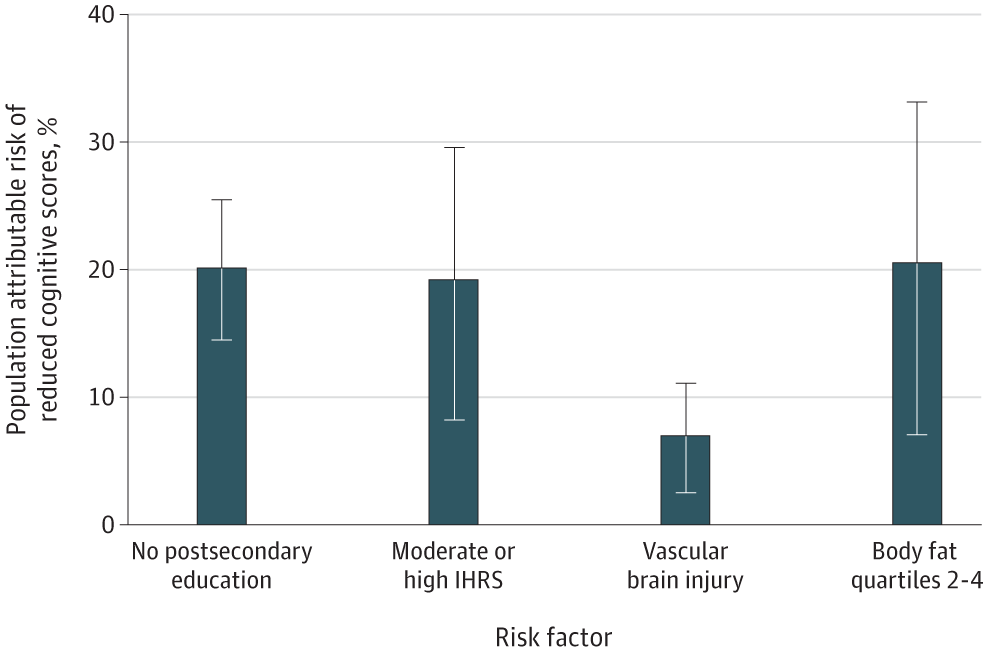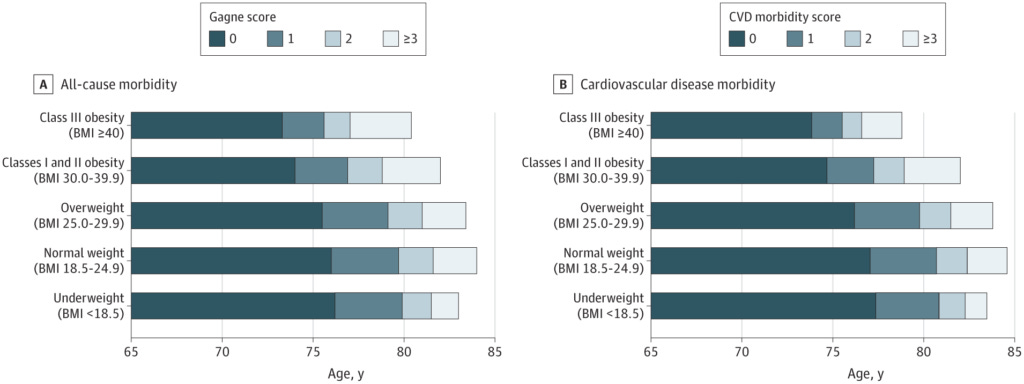The curious case of fat activism and COVID
Why can't we talk about the major controllable risk factor for COVID?
Back in the years BC (Before COVID) I wrote about a huge range of health topics. If you haven’t already done so, you can browse my voluminous Article Library on topics from aging and longevity to cardiovascular disease, diabetes to the psychology of lifestyle change, and women’s health to weight loss.
My aim in writing these articles has always been to unearth the “buried treasure” in medical journals – the fascinating and sometimes even potentially life-changing findings that are bound up in near-impenetrable jargon and frequently behind a paywall – and present it to people who don’t have a background in science, so they can actually make use of this (mostly) publicly-funded research.
I still keep a file of articles that I come across when reading medical journals, that I’d like to write about when the manufactured COVID crisis is over. Look, I know what you’re thinking – This is never going to be over; didn’t the world’s leading doctor, Bill Gates, tell us there would be another one that would “get attention”?
Yes, I know. But I need to maintain some hope, so just indulge me, OK?
Here are a few medical journal articles I’d been saving up for a sunny, manufactured-COVID-crisis-free day. I’m going to briefly summarise the findings of each study, and then I’m going to ask you a question about them (so don’t tune out and skip this bit). Ready? Let’s go.
1. ‘Association Between Childhood Body Size and Premenstrual Disorders in Young Adulthood’
This prospective cohort study (i.e. a study in which participants are followed by researchers over a long period of time) included 6524 US female participants from the Growing Up Today Study, which recruited the children of participants in the famous, ongoing Nurses’ Health Study (NHS) II.
Participants who had been overweight in early adolescence were more likely to suffer from premenstrual disorders in their mid-20s, with those who had been obese around the time of puberty having a higher likelihood of suffering from severe premenstrual symptoms that emerged before the age of 20:
Participants who had an earlier menarche (age at first menstrual period) were more likely to have a premenstrual disorder; having more body fat is known to be associated with earlier menarche.
Participants who had been overweight in early adolescence, but subsequently became lean, did not have an increased risk of premenstrual disorders in their mid-20s, indicating the benefits of effective weight loss programs for prevention of this common female malady.
2. ‘Higher adiposity and mental health: causal inference using Mendelian randomization’
In this study, researchers used data gathered from over 145 000 participants in the UK Biobank, a large and ongoing study investigating the respective contributions of genetic predisposition and environmental factors (including nutrition, lifestyle, sleep habits and medication use) to the development of a wide variety of health conditions.
Specifically, researchers examined the association between higher body fatness (adiposity) and depression risk, teasing out the contribution made by the metabolic dysfunction associated with obesity – high triglycerides, low HDL-cholesterol and increased diabetes risk – which is known to be associated with heightened risk of depression.
You see, some people have genes that make them more prone to accumulating excess body fat, and some have genes that make them resistant to metabolic dysfunction even when they are carrying excess fat, while others have genes that make them highly susceptible to metabolic dysfunction.
The researchers found that even in people with metabolically favourable genetic variants, carrying excess body fat was associated with a 50% higher risk of currently being depressed, along with a lower sense of well-being.
In a nutshell, being overfat is bad for your mental well-being even if you’re blessed with “good genes” that insulate you against developing metabolic dysfunction.
3. ‘Evaluation of Adiposity and Cognitive Function in Adults’
This was a cross-sectional analysis (i.e. data gathered at a single time-point) of the relationship between body fatness, visceral adipose tissue (deep abdominal fat), cognitive function and evidence of vascular brain injury, in 9189 Canadian and Polish adults aged 30-75 years. Participants were all free of cardiovascular disease, which can impair cognitive ability and is associated with increased fat mass.
Both increased general body fatness and higher visceral adiposity were associated with a greater risk of vascular brain injury – that is, damage to the blood vessels in the brain which causes “silent brain infarction”, an area of dead brain tissue that hasn’t yet become clinically apparent because it is too small to cause stroke symptoms, but can still erode cognitive capacity.
Likewise, participants with either higher body fat or higher visceral fat (or both) scored lower on tests of cognitive function. In fact, carrying around too much fat contributed more to the risk of having significantly poorer cognitive function than average, than not completing high school or having cardiovascular risk factors (signified by IHRS [INTERHEART Risk Score]) such as high blood pressure, both of which are known to reduce cognitive ability):
4. ‘Association of Body Mass Index in Midlife With Morbidity Burden in Older Adulthood and Longevity’
This was a prospective cohort study in which nearly 30 000 participants were followed up for over 40 years, starting in 1967, to assess the impact that overweight and obesity in midlife (around age 40) have on health status and health care expenditure in later life (65 and older), and lifespan.
Compared to seniors who were at a healthy weight in their 40s, by later life, those who had been overweight or obese in their 40s were far more likely to be living with a quality-of-life-impairing illness, including cardiovascular disease.
And the fatter participants had been in their 40s, the sicker they were by their mid-60s and beyond (although the class III obesity curves are likely impacted by the so-called “healthy survival bias”, in which only the small minority of people with bullet-proof genes – the types who can smoke a pack of Camels a day, eat greasy food, do no exercise and still kick on to 95 – survive past a certain age):
Median cumulative health care costs after age 65 in people who had been overweight in their 40s were $12 390 higher than for people who had been normal-weight in their 40s. And those who had classes I and II obesity in midlife cost the US Medicare system an additional $23 396 compared to their slim counterparts.
Of the original cohort who had died by the time of this analysis, those who had classes I or II obesity in midlife lived on average 1.5 years less than people who were normal-weight in their 40s, while those with class III obesity in their 40s lost a full 4.6 years of their potential lifespan. Not only that, but fewer years of their lives were lived in good health, unimpaired by any illness:
To summarise, if you’re carrying excess body fat in your 40s, you will be sicker for a greater part of your senior years, and more costly to the taxpayer-funded health care system even though you’ll live a shorter life than healthy-weight peers.
Quiz question
What is the common thread that connects these four articles?
Congratulations, you win the prize:
Carrying too much fat on your body is bad for you, at every stage of life, and is highly likely to make you more miserable, less smart, sicker and prematurely dead.
And this is not news; just ask an actuary whose job is to calculate life insurance premiums.
Yet, despite the clear evidence that obesity is harmful, the postmodernism-informed field of Fat Studies is thriving. Papers such as this one in the sociological press, and this one which was published in a medical journal, argue that we should stop thinking of obesity as a health issue, and instead frame “fat acceptance” as a social justice issue:
“Fatphobia in the United States has always been intimately connected to other systems of oppression like sexism, racism, and classism.”
“Scholars of fat studies understand fatness as a way of thinking about bodily diversity. This literature maintains that fatness should be uncoupled from pathology, as such framings attach fatness to a sense of moral weakness and failed citizenship, and can fuel stigma in various settings, even health care. Such an uncoupling is increasingly supported by medical and population health research, which suggests that people who are labelled obese are not necessarily unhealthy.”
(N.B. I’ve written two previous article about the fat acceptance and Health At Every Size movements; see Is the ‘Health At Every Size’ movement helping or hurting? and Larger body, shorter life.)
Obesity and COVID-19
In this Age of COVID, there is overwhelming evidence that obesity is second only to age as a risk factor for developing severe disease from SARS-CoV-2 infection, requiring admission to hospital, being admitted to an intensive care unit, requiring mechanical ventilation, and dying of COVID-19. I’ve discussed this in my prior articles, When Two Pandemics Collide: How obesity affects COVID-19, How to slash COVID-19 hospitalisation rates by two thirds and The personal and public health threat of obesity in the age of COVID.
Systematic reviews and meta-analyses collectively involving millions of patients (see here, here, here, here, here, here and here) have found up to a 3+ times greater risk of being hospitalised and up to a 60% greater risk of dying in obese individuals compared to those with a healthy weight, and three and a half times greater risk of dying in over 65s.
Furthermore, there’s a dose-response relationship between excess body fat and COVID deaths: analysis of data from a large managed health care system in the US, Kaiser Permanente, found that
“Compared with patients with a BMI of 18.5 to 24 kg/m2 [normal-weight], those with BMIs of 40 to 44 kg/m2 [severe obesity] and greater than 45 kg/m2 [morbid obesity] had relative risks of 2.68 (95% CI, 1.43 to 5.04) and 4.18 (CI, 2.12 to 8.26), respectively.”
How do advocates for fat acceptance deal with this mountain of incriminating data? They tendentiously claim that we can’t blame the increased risk of poor outcomes on obesity itself, because “body weight may not be an independent predictor of poor health outcomes”.
This is patently absurd. Not only does increased body weight (or more to the point, increased body fatness) raise the risk of a host of health conditions that are themselves risk factors for poor health outcomes, but the Kaiser Permanente study cited above found that the association between excessive body fat and risk of dying of COVID-19 was “independent of obesity-related comorbidities and other potential confounders”.
What are we to make of such stubborn denial of easily-verified reality? Is the fat acceptance movement a spontaneously-arising, organic movement that is flourishing because it offers a more accurate understanding of fatness, or a superior way to interpret and respond to the personal and social challenges it presents, than the medical framing of it as “obesity”?
Clearly not. Not only is it entirely unmoored from biological reality, it (along with all the other flavours of postmodernism-inspired identity politics such as critical race theory, intersectionality, fourth-wave feminism and ableism1) fosters a grievance culture that sanctifies victimhood and disavows personal agency. Does anyone truly believe that telling obese people patent falsehoods about the negative impact of excess body fat on their health and well-being, while persuading them that their real problem is that they’re victims of an oppressive system which marginalises and stigmatises them, is helpful to them?
So here’s a subversive thought. What if the fat acceptance movement has been intentionally nurtured and promoted by forces that profit from the increased prevalence of obesity? Big Food, Big Pharma and Big Healthcare immediately spring to mind as obvious beneficiaries. All enjoy cosy relationships with the state and its ideological handmaidens, including the academic institutions that groom the Mandarin class to occupy their assigned roles in the corporate-state apparatus.
And beyond financial profit, powerful institutions benefit from the confusion, extreme polarisation, intolerance of dissent and denunciation of the liberal ideals of free speech and openness to discussion and debate, that fat activism and other flavours of identity politics foment.
Radical ideologies demand enforcement of their precepts, and enforcement requires centralisation of power. The slide toward the northern pole of the political compass’ authoritarian-libertarian axis has been greatly accelerated by the rise of identity politics.
The purveyors of woke ideologies clamour for the outlawing of anything they judge as “hate speech” – unlike the old left which championed free speech even if it involved ideas distasteful to most – and the excommunication from society of anyone “holding unacceptable views”.
And the political class couldn’t be happier with the censorious climate generated by the woke mob: It provides cover for the ratcheting up of their own control over the speech, actions and even thoughts of the populace, and greases the skids for their projects of marginalisation, exclusion and punishment of dissenters (like denying “unvaccinated” people the “free” medical treatment for COVID-19 that their taxes have already paid for). Once the agitariat has been whipped up into a frenzy, it’s not hard to turn their rage onto other objects, as Orwell so trenchantly described:
“The horrible thing about the Two Minutes Hate was not that one was obliged to act a part, but, on the contrary, that it was impossible to avoid joining in. Within thirty seconds any pretence was always unnecessary. A hideous ecstasy of fear and vindictiveness, a desire to kill, to torture, to smash faces in with a sledge-hammer, seemed to flow through the whole group of people like an electric current, turning one even against one’s will into a grimacing, screaming lunatic. And yet the rage that one felt was an abstract, undirected emotion which could be switched from one object to another like the flame of a blowlamp. Thus, at one moment Winston’s hatred was not turned against Goldstein at all, but, on the contrary, against Big Brother, the Party, and the Thought Police; and at such moments his heart went out to the lonely, derided heretic on the screen, sole guardian of truth and sanity in a world of lies. And yet the very next instant he was at one with the people about him, and all that was said of Goldstein seemed to him to be true.”
Nineteen Eighty-Four
There are many possible reasons for the near-total lack of public discussion about the serious impact that obesity has on individuals’ risks of bad outcomes of COVID-19, let alone on the healthcare system.
But the outrage culture fostered by identity politics plays, at the very least, a facilitating role. Even if politicians, health bureaucrats or journalists were aware that obesity is the leading controllable risk factor for severe COVID-19, most would reflexively self-censor for fear of the backlash they would cop if they called for open discussion of this sensitive topic.
In a world where morality has become deformed by cancel culture, merely imagining being accused of fat-shaming and victim-blaming is enough to stop all but the most hardy souls from pointing to the metaphorical elephant in the room.
And for politicians, health bureaucrats and captured agencies like TGA and ATAGI, who had already decided at the very beginning of the manufactured COVID crisis that vaccination was “our only way out of the pandemic”, the tacit embargo on open discussion of Australia’s obesity problem and how to address it, is most convenient. Formulating whole-of-government policies to comprehensively reengineer our obesigenic environment would necessitate dropping agricultural subsidies that artificially lower the cost of obesity-promoting foods, which would throttle the political donations flowing from Big Oil, Big Ag and Big Food, as well as opportunities for lucrative post-political-life employment or board membership in these industries. And that’s just one mote of the fallout from effective anti-obesity policies.
No wonder the Commonwealth Department of Health downplays the major role played by obesity in the severity of COVID-19, relegating it to second-last on its list of risk factors, and falsely claims that only severe obesity (BMI>40 kg/m²) increases risk.
And so, while I doubt that even a handful of the people wielding power and influence in this country could coherently explain any of the concepts discussed in Fat Studies to the non-cognoscenti, the undeniable fact is that the radical ideologies spawned by post-modernism (all of which are obsessed with power dynamics between social and cultural groups) are not threatening the centralising, totalising power of the state; they are reinforcing it. The state always seeks to expand its power and control over the governed, and is adept at both crafting and inserting narratives that reinforce its authority, and manipulating narratives that spontaneously arise to serve its own ends.
To distil this rather discursive post:
Obesity is bad for you. It’s bad for your health, psychological well-being, quality of life and cognitive capacity.
Obesity is the most important risk factor for severe COVID-19 that you can do something about (unlike age).
Fat activism is based on postmodern philosophies that reject science, and even the concept of health itself, as “just another oppressive force of Western colonial hegemony (since objective truth doesn’t exist and is merely manufactured as a tool of oppression)”.
The censorious environment engendered by the rise of identity politics such as fat studies serves the interests of the corporate-state apparatus, which is happy to make use of any tool it encounters to consolidate its own power and control.
And to free ourselves from this ever-encroaching leviathan, we need to take radical responsibility for ourselves and our families, on every plane: supporting our physical health with species-appropriate nutrition, physical activity, sleep and sunlight exposure; fine-tuning the quality and quantity of our information diet; and building community with other philosophically aligned people in order to co-create decentralised solutions for everything we require in order to survive and thrive, from the most basic survival needs of water, food and shelter to the most complex human drives for intimate relationships, personal fulfilment and spiritual communion.
I have many more thoughts on this which I’ll be sharing in subsequent posts. Please join the conversation in the comments section below.
UPDATE:
Just in case you thought I was exaggerating the insanity level of the academic discipline of “fat studies”, watch this video in which comedian and olitical commentator Steven Crowder describes how he wrote, as a stunt, a paper 'Embracing Fatness as Self-Care in the Era of Trump' and submitted it to the organisers of an academic conference. Not only was his paper accepted, he was invited to address the conference (which he did virtually, in drag). His performance was greeted enthusiastically, and he was subsequently invited to peer-review another fat studies paper.
For an excellent primer on these and other flavours of critical theory, read Cynical Theories.










How about looking into the effects of food (tampered with) and whats put into it and the consequences of that tampering also the consequences of vaccines Mmr and dtap on our little babies for life all for the benefit of big pharma forever for them and their parents
Obesity is vaccine induced.
Role of bovine adiponectin contaminated vaccine induced autoimmunity in the etiology of type 2 diabetes, atherosclerosis related coronary artery disease, cerebral infarction, obesity and polycystic ovarian syndrome; epicutaneous immunotherapy home remedy as a potential prevention or treatment approach
https://doi.org/10.5281/zenodo.3261865
So it must be normalized as "bodily diversity" to keep people from digging up the truth.
Autism is vaccine induced.
https://vinuarumugham.substack.com/p/cows-milk-protein-contaminated-vaccines?s=w
So it must be normalized as "neurodiversity".
Gender dysphoria is vaccine induced.
https://vinuarumugham.substack.com/p/role-of-vaccine-induced-juvenile
So it must be normalized as "gender diversity".